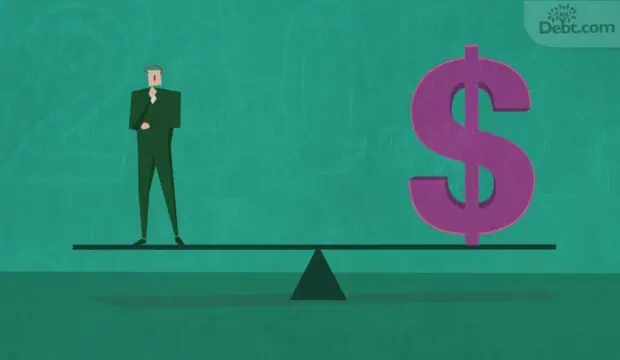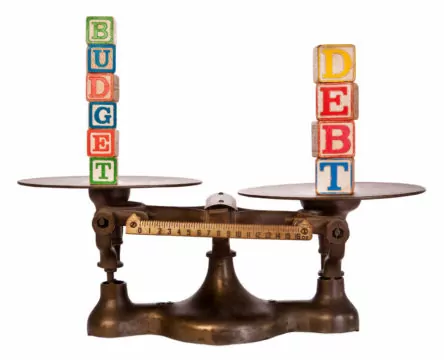If you put off paying certain bills each month because you dread the experience, don’t be too hard on yourself. Lots of people procrastinate when it comes to forking over money for credit cards, loans, and utility payments. However, it’s important to pay your bills on time, since paying late can hurt your credit.
Whatever your reasons for bill-paying procrastination, the practice doesn’t have to become a lifelong habit. You can take steps right now to make paying bills a little more appealing so you don’t pay late or forget payments.
Paying bills on time is an essential aspect of financial management that often gets overlooked. It involves ensuring that all your financial obligations, such as utility bills, credit card payments, and loans, are paid promptly before their respective due dates. In this article, we will explore the importance of paying bills on time, provide useful tips to help you stay on track, discuss the consequences of late payments, and offer guidance on overcoming challenges related to bill payment. By incorporating these practices into your financial routine, you can maintain a healthy financial life and avoid unnecessary stress.
Effective bill payment ensures that you meet your financial commitments on time, avoid late fees or penalties, maintain a positive credit history, and ensure the smooth functioning of essential services. It is a fundamental aspect of maintaining financial stability and staying on top of your financial responsibilities.
The Importance of Paying Bills on Time
Paying bills on time is crucial for several reasons. Firstly, it helps you avoid incurring late fees and penalties, which can accumulate over time and put a strain on your finances. By paying promptly, you save money that can be better utilized elsewhere. Secondly, paying bills on time positively impacts your credit score. Consistently late payments can lower your credit score, making it harder for you to secure loans, obtain favorable interest rates, or even rent an apartment. Additionally, timely bill payments ensure that you continue to receive essential services without interruption, such as electricity, water, and internet access.
Tips for Paying Bills on Time
To ensure timely bill payment, consider implementing the following tips:
Setting Up Payment Reminders
Utilize technology by setting up payment reminders on your smartphone or computer. You can use calendar apps, task management tools, or specialized bill reminder apps to receive alerts before the due dates. This way, you won’t forget important payment deadlines.
Creating a Monthly Budget
Developing a monthly budget allows you to allocate funds for bill payments in advance. Take into account your income, expenses, and savings goals when creating the budget. By knowing how much money you have available and when bills are due, you can plan your payments accordingly.
Automating Bill Payments
Take advantage of automatic bill payment options offered by banks and service providers. With this feature, you authorize the deduction of bill amounts directly from your bank account or credit card on the due dates. It saves time, reduces the risk of forgetting, and ensures payments are made promptly.
Prioritizing and Organizing Bills
Make a list of all your bills and prioritize them based on due dates and importance. This will help you allocate funds accordingly and ensure essential bills are paid first. Consider the consequences of non-payment for each bill, such as the potential loss of essential services or negative credit impact, to prioritize effectively.
Reduce the number of monthly bills
It’s easy to miss a due date when you’re paying monthly bills on multiple credit cards. But if you consolidate the balances onto a balance transfer credit card with an introductory 0 percent APR, you’ll only have one monthly credit card due date to remember.
Depending on the balance for each card, a balance transfer may or may not be a good idea. That’s because you’ll usually pay a transfer fee ranging from 3 percent to 5 percent of the balance transfer. To find out if a balance transfer is too costly, weigh the amount you would pay in interest on your credit card balances against the fees you would have to pay.
Another way to reduce the number of monthly bills is to focus on paying off one credit card with larger payments. When the balance is paid, take that same amount and apply it to the next credit card balance. Eventually, you’ll have a more manageable amount of debt, along with fewer payments to remember.
The Consequences of Late Payments
Late payments can have significant consequences that affect your financial well-being. It’s important to be aware of the potential drawbacks to motivate timely bill payments. Here are some of the consequences of paying bills late:
Late Fees and Penalties
Many service providers impose late fees and penalties when bills are not paid on time. These charges can quickly add up and strain your budget. By paying bills promptly, you can avoid unnecessary expenses and allocate your funds more effectively.
Negative Impact on Credit Score
Late payments can have a negative impact on your credit score. Payment history is a key factor in credit scoring models, and consistently late payments can lower your score. A lower credit score can make it difficult to obtain loans, credit cards, or favorable interest rates in the future.
Disruption of Services
Some bills, such as utility bills, are essential for maintaining a comfortable living environment. Late payments may result in the suspension or disconnection of services like electricity, water, or internet access. This can cause significant inconvenience and disrupt your daily life.
Overcoming Challenges in Paying Bills on Time
Meeting bill payment deadlines can sometimes be challenging, especially if you’re facing financial difficulties. However, there are strategies you can employ to overcome these challenges:
Adjusting Due Dates
If you find it difficult to manage multiple bill payments due at the same time, consider contacting your service providers to request a change in due dates. Many companies are willing to accommodate such requests, allowing you to align due dates with your pay schedule and make timely payments more manageable.
Negotiating with Creditors
If you’re experiencing financial hardship and struggling to pay certain bills, it’s worth reaching out to your creditors to discuss potential solutions. They may be willing to work out a modified payment plan or offer temporary relief options. Communication is key to finding mutually beneficial arrangements.
Seeking Financial Assistance
In times of financial hardship, there are often local and national resources available to assist individuals facing challenges in paying their bills. Research community assistance programs, government support, or charitable organizations that can provide financial aid or connect you with relevant resources.
Developing Healthy Financial Habits
Beyond timely bill payment, it’s crucial to develop healthy financial habits that contribute to your long-term financial well-being. Consider the following practices:
Tracking Expenses
Keeping track of your expenses allows you to understand where your money is going and identify areas where you can make adjustments. Utilize budgeting apps or spreadsheets to monitor your spending habits and ensure that you allocate sufficient funds for bill payments.
Saving for Emergencies
Building an emergency fund is essential for financial security. Set aside a portion of your income regularly to create a safety net for unexpected expenses. Having savings can prevent you from relying on credit or struggling to pay bills in times of emergencies or financial setbacks.
Seeking Professional Advice
If you’re finding it challenging to manage your finances effectively, don’t hesitate to seek professional advice. Financial advisors or credit counselors can provide personalized guidance based on your unique situation and help you develop a comprehensive plan for managing your bills and overall finances.
Connect with a certified credit counselor to help you set up a budget and get your finances on track.
Frequently Asked Questions (FAQs)
Paying bills on time is important to avoid late fees, maintain a positive credit score, and ensure uninterrupted access to essential services.
Consistently paying bills late can result in the accumulation of late fees, a negative impact on your credit score, and potential service disruptions.
Setting up payment reminders, automating bill payments, and creating a monthly budget can help you stay organized and avoid forgetting to pay your bills.
If you’re facing financial difficulties, consider adjusting due dates, negotiating with creditors, and seeking financial assistance from local resources or support programs.
It is advisable to pay bills before the due date to avoid late fees, penalties, and potential negative impacts on your credit score.
Summary
Paying bills on time is a fundamental aspect of maintaining financial stability and peace of mind. By understanding the importance of timely payments, implementing strategies to overcome challenges, and developing healthy financial habits, you can ensure that your bills are paid promptly. Remember, timely bill payment not only saves you money in the form of late fees but also helps preserve your creditworthiness and ensures uninterrupted access to essential services.







